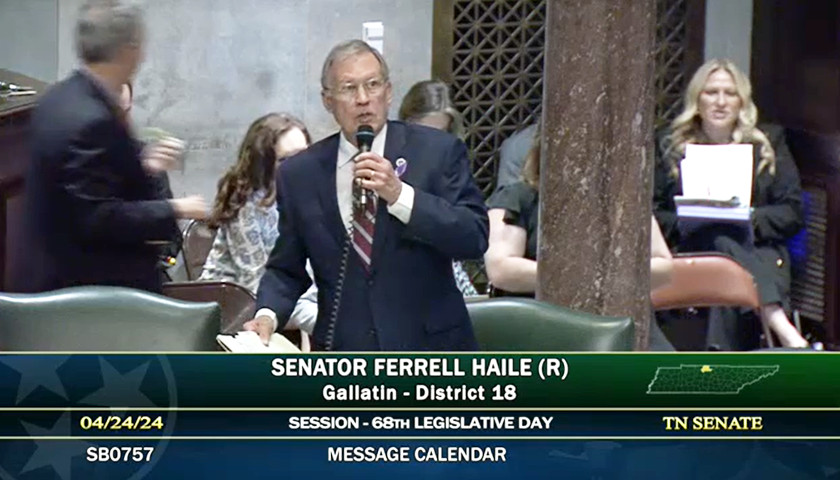A Tennessee legislator filed a bill that would criminalize the posting of false reviews about businesses on the internet.
If passed, House Bill (HB)1664 would classify those actions as Class B misdemeanors under the Tennessee Code. The maximum penalties for a Class B misdemeanor conviction in Tennessee are fines of up to $500, as much as 6 months in jail, or both.
State Representative David Byrd (R-Waynesboro) filed HB 1664 in the Tennessee General Assembly this week. The bill amends Tennessee Code Annotated, Section 47-18-104(b) by adding the language “Posting a review on the internet about a business that is factually false with the intent to defraud the public,” as a subdivision to the list of prohibited actions.
Byrd told The Tennessee Star that he filed the bill because a specific situation brought to his attention just how dangerous posting false online reviews against businesses can be. He was made aware of a business that was targeted with false online reviews by its biggest competitor.
As a consumer, Byrd is also affected by false online reviews as well. “I also check online reviews and if I see one or two, then I ignore them and they don’t affect my personal purchasing decisions, but if there’s several or many, that certainly will affect my decision making.”
Byrd said he believes that HB 1664 is a commonsense bill and ought to gain widespread support.
Section 47-18-104(b) of the Tennessee Code works under Section 47-18-104(a), which states, “Unfair or deceptive acts or practices affecting the conduct of any trade or commerce constitute unlawful acts or practices and are Class B misdemeanors.”
The bill summary also states that HB 1664 is “AN ACT to amend Tennessee Code Annotated, Title 39 and Title 47, relative to posting reviews on the internet.” Title 39 is the section of state code dealing with criminal offenses and Title 47 deals with “Commercial Instruments and Transactions.”
There are currently 45 subdivisions in Tennessee Code Annotated, Section 47-18-104(b). A small sampling of those prohibited actions listed in subsection (b) include: “Disparaging the goods, services or business of another by false or misleading representations of fact”, “Falsely passing off goods or services as those of another”, “Causing likelihood of confusion or of misunderstanding as to the source, sponsorship, approval or certification of goods or services”, “Using deceptive representations or designations of geographic origin in connection with goods or services”, “Representing that goods are original or new if they are deteriorated, altered to the point of decreasing the value, reconditioned, reclaimed, used or secondhand”, “Advertising of any sale by falsely representing that a person is going out of business”, and “Offering lottery winnings in exchange for making a purchase or incurring a monetary obligation pursuant to § 47-18-120”.
The use of online reviews to determine a purchase is a regular part of the shopping experience in the United States. According to a study done by Pew Research, “half of adults under 50 routinely check online reviews before buying new items.” The posting of a false negative review or even an accurate negative review may result in a civil lawsuit, but there are currently no criminal penalties in Tennessee.
HB1664 is at the beginning of the legislative process and has many steps to go through before it could become law. This is the first bill that Rep. Byrd has sponsored for this General Assembly session.
– – –
Aaron Gulbransen is a reporter at The Tennessee Star and The Star News Network.






A very necessary and important legislative initiative! We all suffer from false reviews, both as consumers and business owners! As a representative of American Copy Service, I also encountered this recently, unfortunately.
There should be a provision to award treble damages to any person that is charged over a post that ends up being true.
That would be challenged on 1st Amendment grounds. They should know better. The litigation alone will make prices go up.